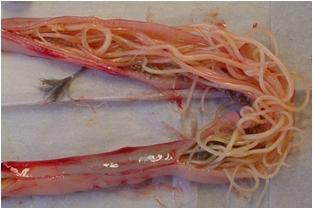- Jan 14, 2008
- 5,644
- 497
- 303
Wormers are poisons. Why give something a poison if you don't know for sure they need it.
Most birds, animals & in much of the world people carry some worms in their gut. It really only becomes a problem when the population grows to the point it overwhelms the host. If your birds weigh what they should, look good & are active they don't need to be wormed.
Most birds, animals & in much of the world people carry some worms in their gut. It really only becomes a problem when the population grows to the point it overwhelms the host. If your birds weigh what they should, look good & are active they don't need to be wormed.







